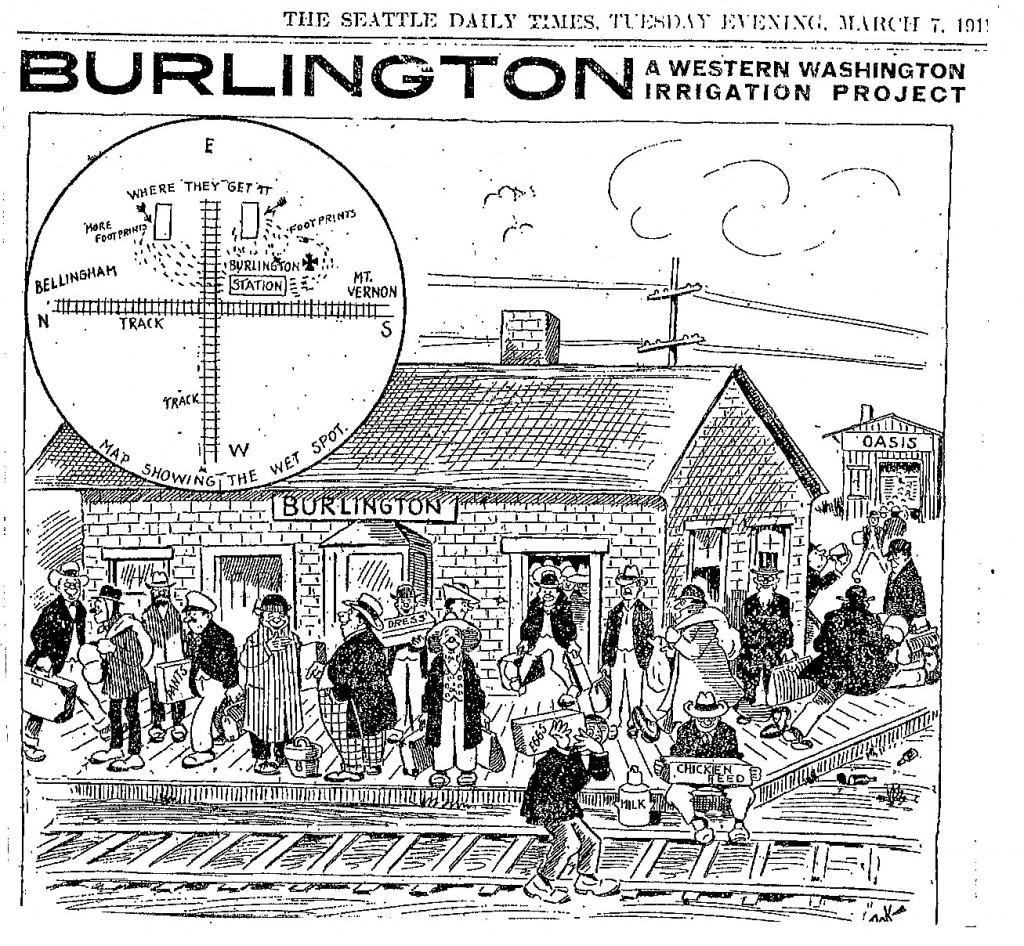Saloons Only Serve the Worst Appetites of Men
From the desk of Steve Willis, Central Library Services Program Manager of the Washington State Library:
Found at random in The Journal (Burlington, Washington), Sept. 27, 1900, page 1, top of the fold:
Another Saloon
“The question of another saloon in Burlington has been quite freely discussed among our citizens during the past week, since it had been reported that property had been purchased and arrangements made for the establishment of another liquor dispensary. From all that can be learned it seems to be the general concensus of opinion that for a town of Burlington’s size, and without police protection, even one saloon is enough and one too many. The Journal tries, as near as possible, to represent public sentiment in this community, whatever the faults of its editor may be. The town is yet in its infancy, but has advanced wonderfully in a legitimate business way during the past year, and it is to be hoped will increase in business and population to a still greater extent during the year 1901. It has been our idea that another large general merchandise store (and we have one already carrying a stock as large as any in Mt. Vernon or Woolley), a good blacksmith and wagon making establishment, a drug store, an oat meal mill and a fruit evaporating and drying plant would be more to the interests of our citizens than another saloon. Saloons only serve the worst appetites of men; and while it may be argued by one conservative element that they are a necessary evil, whereby trade in other lines is held against other towns, such conditions do not exist in Burlington.”
“This paper speaks for the community, and by request of many of our citizens. Nothing can or will be said against individuals. The sentiment is simply against the evil which results from an over-abundance of whisky and gambling, whether by one or more saloons.”
Burlington had a population of just over 500 in 1900. The town incorporated in 1902. Apparently over time the lure of liquor license fees overcame the reluctance to limit the consumption of booze in Burlington. But a new era was dawning– Prohibition was looming on the horizon.
As explained in Skagit Settlers : Trials and Triumphs 1890-1920:
“The first victory of the dry forces was ‘local option’ which permitted divisions of the state to decide for themselves whether they wanted saloons. In 1909 rural Skagit County outside the incorporated towns voted dry and the country saloons were closed in early 1910 … local option elections were held in all the incorporated towns of the county and only Mount Vernon, Lyman, and Hamilton went dry. Burlington, five miles away from Mount Vernon, celebrated the Glorious Fourth that year by permitting its saloons to stay open around the clock from July 1 to the 5th. The railroad fare from Mount Vernon to Burlington was only 10 cents, yet from one Saturday night to Sunday, the Mount Vernon depot sold $70 worth of tickets. The situation became so notorious, witness the 1911 cartoon in the [Seattle Daily Times], that in February of 1912 the Burlington City Council decided to ban saloons. The liquor interests fought the decision but it was upheld in the courts.”
In 1914 the voters of Washington approved Initiative No. 3, a measure making Prohibition the law of the land for the Evergreen State. You can read the text of the initiative in the 1914 voter’s pamphlet, available in digital form via the WSL catalog.
The Journal lives on but under two different titles. It is part of a complicated genealogy of newspaper mergers, splits and absorptions, all documented in one of WSL’s newspaper history charts.
You can follow any responses to this entry through the RSS 2.0 feed. Both comments and pings are currently closed.







